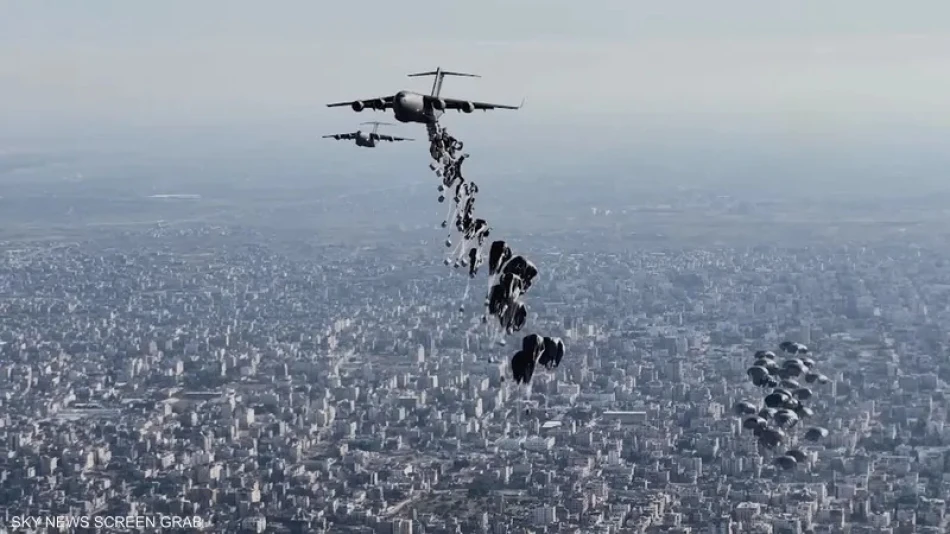
Emirati-Backed 'Goodwill Birds' Soar Again over Gaza, Providing Uninterrupted Aid
UAE Resumes Aerial Aid Drops to Gaza After Nine-Month Hiatus
The United Arab Emirates has successfully resumed its humanitarian airdrop operations over Gaza after a nine-month suspension, marking a significant diplomatic achievement amid ongoing regional tensions. The "Birds of Goodness" mission, operating under the broader "Gallant Knight 3" operation, has already delivered 3,750 tons of aid since its inception and represents 44% of all international assistance to Gaza according to UN reports.
Diplomatic Success Breaks Aid Delivery Deadlock
The resumption of aerial operations follows intensive UAE diplomatic efforts worldwide to overcome obstacles that had halted the program since early 2024. The nine-month suspension, caused by evolving war conditions, highlighted the complex logistics of delivering humanitarian aid in active conflict zones.
The original "Birds of Goodness" operation launched on February 29, 2024, as a joint initiative between UAE and Egyptian air forces. The first coordinated drop involved three aircraft delivering 36 tons of food and medical supplies to the northern Gaza areas of Jabalia and Beit Lahia.
Multi-Modal Aid Strategy Shows Results
The UAE's comprehensive approach—combining land, sea, and air delivery methods—has proven remarkably effective. This diversified strategy has enabled the Emirates to contribute nearly half of all international aid reaching Gaza, a substantial achievement that underscores the importance of flexible logistics in humanitarian crises.
Advanced GPS Technology Enhances Precision
The operation employs GPS-guided containers for precise delivery to designated locations, representing cutting-edge technology in humanitarian airdrops. This system ensures aid reaches intended recipients while minimizing waste and security risks—a crucial consideration in densely populated conflict zones.
Broader Humanitarian Infrastructure Investment
Beyond airdrops, the "Gallant Knight 3" operation has established substantial infrastructure since its November 5, 2023 launch under directives from UAE President Sheikh Mohammed bin Zayed Al Nahyan. After 500 days of continuous operation by March 31, the program has delivered over 65,000 tons of aid valued at more than $1.2 billion.
The UAE's infrastructure investments include two field hospitals—one inside Gaza and a floating hospital off Egypt's Al-Arish coast—along with six desalination plants producing two million gallons of clean water daily. Additionally, 21 field bakeries and 50 charitable kitchens provide daily bread and hot meals to affected families.
Regional Implications and International Precedent
The UAE's sustained humanitarian commitment demonstrates how Gulf states are increasingly taking leadership roles in regional crisis response, moving beyond traditional diplomatic channels to direct action. This approach mirrors successful humanitarian interventions in Yemen and Syria, where Gulf nations have provided substantial aid despite complex political dynamics.
The operation's scale and technological sophistication also sets new standards for humanitarian airdrops, potentially influencing how international organizations approach aid delivery in future conflicts. The GPS-guided precision drops could become a model for other nations facing similar challenges in reaching civilian populations in conflict zones.
The resumption after such an extended pause signals both the UAE's diplomatic persistence and the international community's recognition that humanitarian corridors must remain operational regardless of political complexities—a principle that will likely prove crucial for future crisis responses in the region.
Most Viewed News

 Sara Khaled
Sara Khaled






